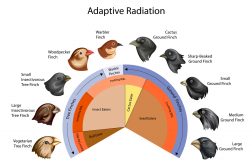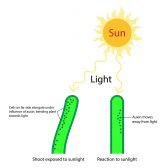Definition
noun
(genetics, cell biology) A cell or an organism consisting of one set of chromosomes
adjective
Of, or pertaining to, a monoploid, that is a cell or an organism with a single set of chromosomes
Supplement
Ploidy refers to the number of sets of homologous chromosomes in the genome of a cell or an organism. Each set is designated by n. The term monoploid refers to a cell or an organism that has a single set of chromosomes. This is in contrast to diploid that has two sets of chromosomes. In humans and other higher forms of living things, one of the two sets is derived from the mother’s gamete and the other is from the father’s gamete that united during fertilization. In a diploid state the haploid number is doubled, thus, this condition is also known as 2n. A monoploid would only have one set of the chromosome and therefore is represented by 1n. The state of being monoploid is referred to as monoploidy. In humans and most animal species, monoploidy instead of the normal diploid state would be lethal. Nevertheless, there are also few animal species wherein monoploidy is a normal part of the life cycle. For instance, certain male wasps, ants, and bees are monoploid and have developed from unfertilized eggs.1
Word origin: mono- (“one”)
Compare:
See also:
Related forms:
- monoploidy (noun)







